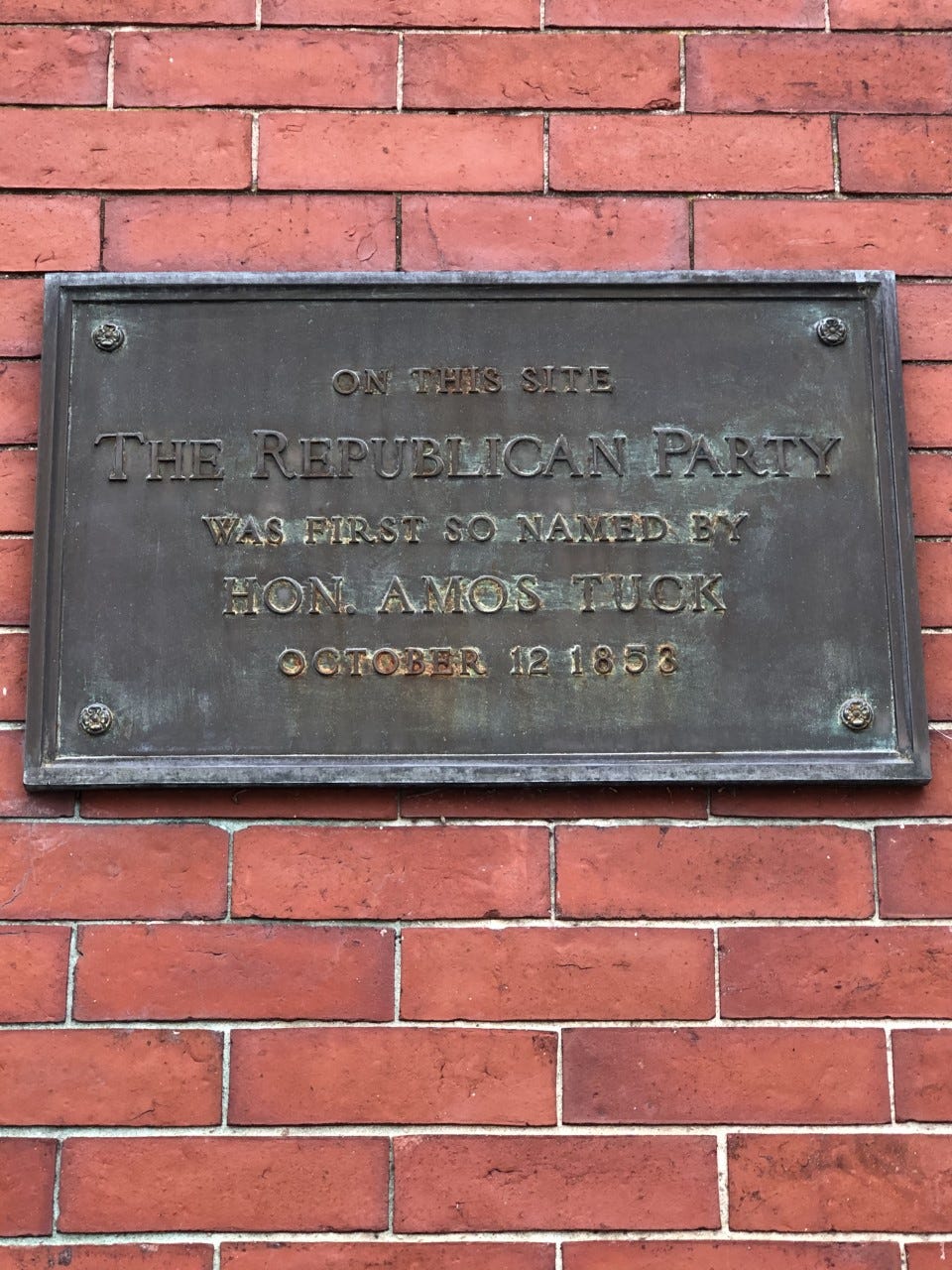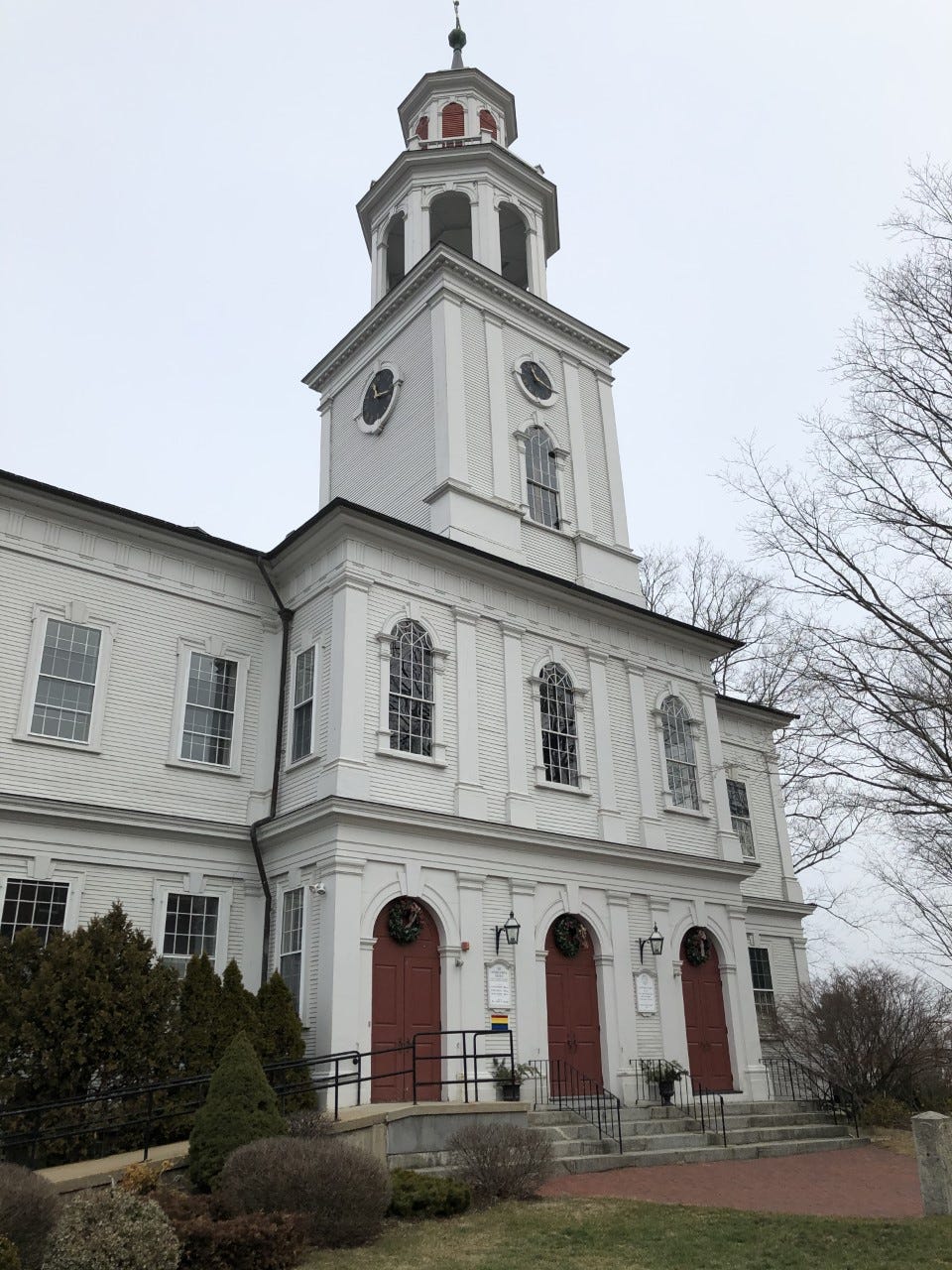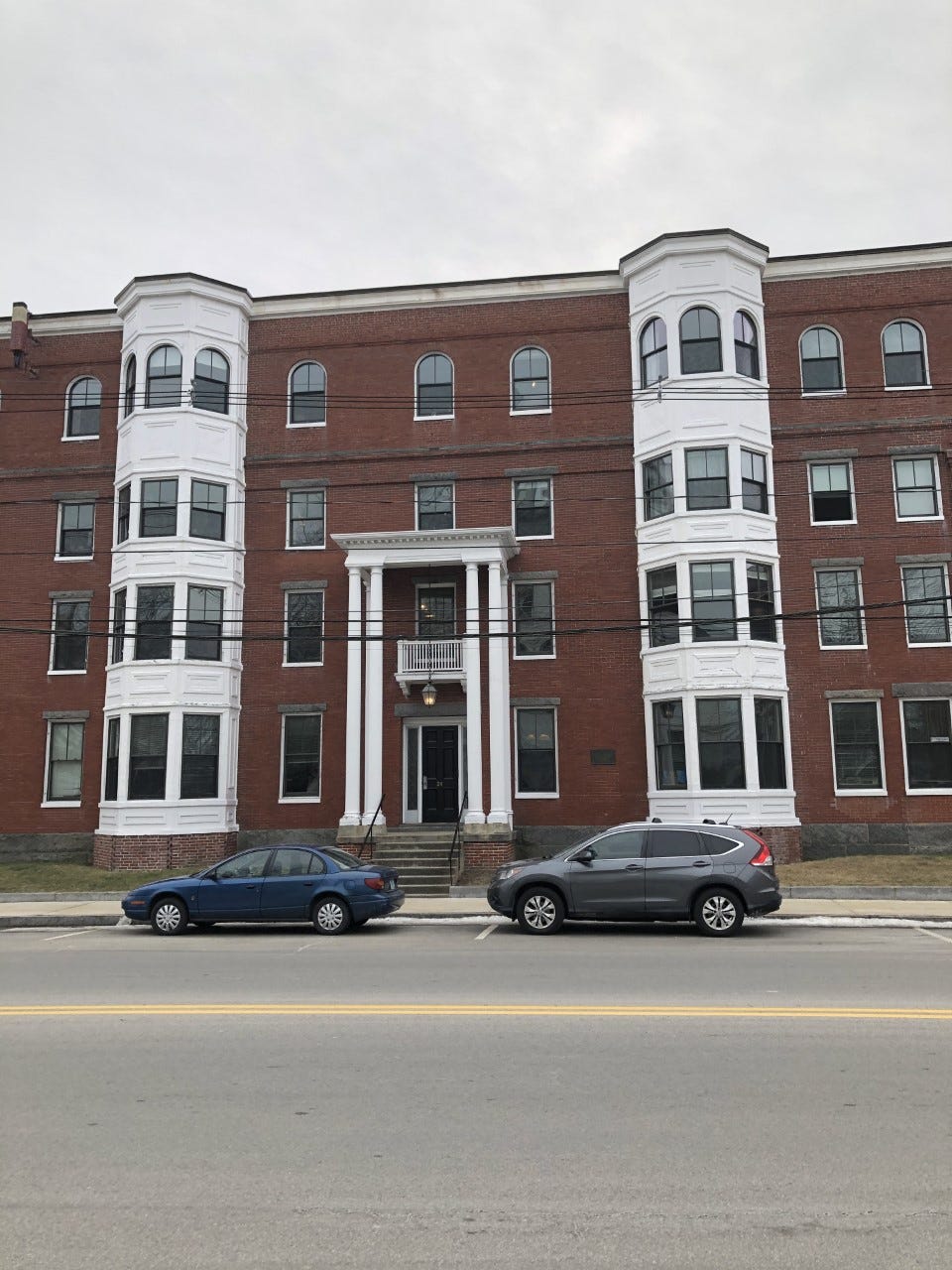Birthplace of the Republican Party or an old Yankee tale?
Most mornings start with a short drive with my wife to scenic and historic Exeter, New Hampshire, for a delicious cup of coffee and fine morning conversation. Even an American history lover like myself takes for granted the rich past just footsteps outside my coffee haunt. The antebellum structures, gems hidden in plain sight, are woven seamlessly into present-day Exeter. All of the places of local lore about prominent Exeter lawyer and Congressman, Amos Tuck, and the founding of the Republican Party are just a short walk from my morning coffee.
Amos Tuck did not want to follow in his father’s footsteps as a farmer. He graduated from Dartmouth College and shortly after moved to Exeter in 1836 with his wife and three children to practice law. The 1840s were a turbulent time in New Hampshire politics. Future President Franklin Pierce exercised a tight grip on the Democratic Party, so the state was solidly under his party leadership. The fissure between pro and anti-slavery factions among the Democrats rose to the surface in 1844, when Congressman John P. Hale was denied nomination for a second term over his opposition to the annexation of Texas as a slave state. The Hale affair put Tuck at odds with Pierce, driving him out of the Democratic Party.
Tuck’s abolitionist views and disillusion with the Democratic Party moved him to organize a convention in February 1845, to discuss the state of “Independent Democrats,” and a move toward what he described as “Republicanism.” There were 260 attendees who met in the First Parish Church on Front Street. The church is still in use today, as The First Congregational Church of Exeter.
Tuck went on to represent New Hampshire’s first district in Congress for three consecutive terms. He served his first term in 1847 as an Independent, his next, in 1849, as a member of the Free Soil Party, and his last, in 1851, as a Whig.
By happenstance, as a freshman Congressman in 1847, he was seated in the House Chamber next to another first-time Congressman from Illinois named Abraham Lincoln. They became fast friends, both being prominent early Republicans.
When Tuck returned to Exeter following his stint in Congress, he remained active in politics. It is told in New Hampshire that Tuck organized a secret meeting to unite anti-slavery factions which met at the Major Blake Hotel.
Even the hotel name has an air of intrigue. The proper name of the hotel is The Squamscott Hotel, which was operated by Major A. P. Blake. It appears that locals referred to the establishment as “The Major Blake’s Hotel.”
Tuck’s stated purpose for the meeting was to pull together local anti-slavery groups for “harmonizing the different party organizations whereby a more united co-oporation can be secured and the four parties may pull together under one title of organization.” The name of this new organization was The Republicans. Tuck then began organizing these Republicans into a statewide political party.
Interestingly enough, The Squamscott Hotel still stands on Front Street across from the First Congregational Church. The hotel is now an office building named “Major Blake’s Offices.” The plaque on the building placed in the 1920s reads: “On this site, The Republican Party was first so Named by Hon. Amos Tuck, October 12, 1853.”
History always has a twist. Amos Tuck never provided a record of this secret meeting in his years following 1853. Historians have vouched for invitations existing for the meeting. A credible letter was published to the local Exeter newspaper eight years following Tuck’s death that detailed the gathering. A letter also exists sent by Tuck to his family from Chicago and dated two days prior to the Squamscott Hotel meeting.
History does record that Amos Tuck was a leading force in unifying differing anti-slavery factions into a cohesive Republican Party in New Hampshire. Tuck was influential in creating the national Republican Party. He has also been recognized for his role in the insurgent nomination of his friend Abraham Lincoln in 1860. His son, Edward Tuck, endowed the Amos Tuck Business School at Dartmouth College. Amos Tuck was a successful businessman following the Civil War and secured a favorable place in New Hampshire history.
So is Exeter, New Hampshire the birthplace of the Republican Party? Or is this just an old Yankee tale?
If you haven’t subscribed to the Racket yet, click the button below to do so while it’s still free. And remember, with the Racket you get MORE than what you pay for!
You can also find us on Twitter and Facebook. We are not on Parler and don’t plan to be. We aren’t expecting to be banned, but click that subscribe button just in case!
As always, we appreciate shares. If you see something here that you like, please send it to your friends and tell them that all the cool kids read the Racket!




